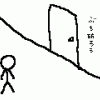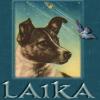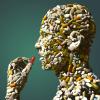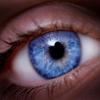That doesn't seem to be very helpful though... I skimmed through the study and it seems that it only boosts bdnf levels in non-smokers, and chronic use leads to decreased bdnf levelsΔ9-THC increased BDNF levels; this was driven by
the control group. Thus, at +145 min, i.e., at the end of the
20-min intravenous infusion of Δ9-THC, there were group
differences in serum BDNF levels (F1,95=4.83, p=0.03)
http://www.springerl...r2/fulltext.pdf

Best Supplements to Stimulate Neurotrophic Factors
#31
Posted 01 December 2011 - 08:10 PM
#32
Posted 01 December 2011 - 09:08 PM
More studies,That doesn't seem to be very helpful though... I skimmed through the study and it seems that it only boosts bdnf levels in non-smokers, and chronic use leads to decreased bdnf levelsΔ9-THC increased BDNF levels; this was driven by
the control group. Thus, at +145 min, i.e., at the end of the
20-min intravenous infusion of Δ9-THC, there were group
differences in serum BDNF levels (F1,95=4.83, p=0.03)
http://www.springerl...r2/fulltext.pdf
subacute daily Δ9-THC exposure (1.5 mg/kg i.p daily×
7 days) up-regulated BDNF in a region-specific manner in
rats (Butovsky et al. 2005).
Edited by Ark, 01 December 2011 - 09:09 PM.
#33
Posted 01 December 2011 - 10:21 PM
Alright, here's what I've found:Getting a bit more back on topic, it would appear that anything stimulating GDNF is a pretty rare bird.
Ibogaine/Noribogaine
Anti-addiction drugs with very strong effects on GDNF expression. (http://www.ncbi.nlm....pubmed/21040239)
Melatonin
When C6 cells were treated with physiological (0.05-1 nM) or higher (10 and 100 nM) concentrations of melatonin for 24 h, a significant induction of relative GDNF mRNA levels (n = 4) was detected. (http://journals.lww....onin_in.23.aspx)
#34
Posted 02 December 2011 - 12:09 AM
That doesn't seem to be very helpful though... I skimmed through the study and it seems that it only boosts bdnf levels in non-smokers, and chronic use leads to decreased bdnf levelsΔ9-THC increased BDNF levels; this was driven by
the control group. Thus, at +145 min, i.e., at the end of the
20-min intravenous infusion of Δ9-THC, there were group
differences in serum BDNF levels (F1,95=4.83, p=0.03)
http://www.springerl...r2/fulltext.pdf
I'm not sure I follow what you mean, please explain.
#35
Posted 02 December 2011 - 02:10 AM
#36
Posted 02 December 2011 - 05:49 AM
Δ9-THC increased BDNF levels; this was driven by
the control group. Thus, at +145 min, i.e., at the end of the
20-min intravenous infusion of Δ9-THC, there were group
differences in serum BDNF levels (F1,95=4.83, p=0.03)
http://www.springerl...r2/fulltext.pdf
Cannabis is awesome. And for those that love to envision the stereotypical pothead and make snide comments about goofy retarded behavior would be well advised to bite their tongue. Sure it has its drawbacks but I can tell you there are lots of intelligent and successful people that partake at least occasionally. I love to produce music and cannabis is awesome for creativity, mood, melatonin stimulation, and more. If you need help getting to sleep it works much better than a melatonin supplement that's for sure. But... it ain't legal.
#37
Posted 02 December 2011 - 05:51 AM
I definitely need to get my hands on Selegiline. PPQ should be given a try but some people are reporting nothing. I am assuming that combining it with ALCAR should help.
I always envisioned PQQ as more of a maintenance/preventative measure for "mitochondrial support". I doubted any sort of acute effects. But looks as if there are some of those as well. I'll be trying it for myself soon enough.
#38
Posted 02 December 2011 - 03:56 PM
Edited by devinthayer, 02 December 2011 - 04:36 PM.
#39
Posted 02 December 2011 - 04:31 PM
Alright, here's what I've found:Getting a bit more back on topic, it would appear that anything stimulating GDNF is a pretty rare bird.
Ibogaine/Noribogaine
Anti-addiction drugs with very strong effects on GDNF expression. (http://www.ncbi.nlm....pubmed/21040239)
Melatonin
When C6 cells were treated with physiological (0.05-1 nM) or higher (10 and 100 nM) concentrations of melatonin for 24 h, a significant induction of relative GDNF mRNA levels (n = 4) was detected. (http://journals.lww....onin_in.23.aspx)
I was going to mention ibogaine.... what about noribogaine?
Ashwagandha
By far one of the best herbs to cycle with Lion's Mane for neurotrophic factors. I'm surprised you didn't include it; I thought it was a favorite on these forums. It's definitely my favorite. Ashwagandha Stimulates GDNF Receptor (RET): http://www.ncbi.nlm....les/PMC2765306/ ... You're welcome.
Cabergoline
A weak D2/D1 agonist, increases GDNF (http://www.ncbi.nlm....pubmed/12770616). I've seen it at some rogue pharmacies (as Dostinex) for a pretty penny.
Royal Jelly
Ups GDNF in hippocampus of mouse brain: http://www.ncbi.nlm....pubmed/15849420 . I remember talking to a Vitamin World worker about that. I was thinking... will this turn me into a Queen Bee? She says a lot of old Chinese people buy out all the Royal Jelly. I laughed, because it made absolutely no sense to me at the time.
Clenbuterol
Beta2 Adrenergic agonist. http://www.sciencedi...889159110001741
Edited by devinthayer, 02 December 2011 - 04:55 PM.
#40
Posted 02 December 2011 - 06:07 PM
Sampled From: http://en.wikipedia.org/wiki/CYP1A2
Inhibitors (bad for conversion):
- caffeine/xanthines
- antidepressants
- melatonin
- estriol
- quinolones
- modafinil
- broccoli
- brussel sprouts
- char-grilled meat
- tobacco not nicotine
Side note: Tianeptine does not affect any p450 enzymes.
Edited by devinthayer, 02 December 2011 - 06:38 PM.
#41
Posted 02 December 2011 - 07:48 PM
From readings, noribogaine is a metabolite of ibogaine which has less intense side effects, and looks to be primarily responsible for GDNF activity. Unfortunately, the Schedule I classification makes using it difficult. This seems to be one of the strongest GDNF-inducers out there too.I was going to mention ibogaine.... what about noribogaine?
Sweet finds. I never feel any effect with Ashwagandha, but I'll give it another go. I might have to try some royal jelly too, but I would kinda like to find more supporting information on its GDNF activity. I'm surprised royal jelly hasn't had more attention for this purpose.Ashwagandha
By far one of the best herbs to cycle with Lion's Mane for neurotrophic factors. I'm surprised you didn't include it; I thought it was a favorite on these forums. It's definitely my favorite. Ashwagandha Stimulates GDNF Receptor (RET): http://www.ncbi.nlm....les/PMC2765306/ ... You're welcome.
Cabergoline
A weak D2/D1 agonist, increases GDNF (http://www.ncbi.nlm....pubmed/12770616). I've seen it at some rogue pharmacies (as Dostinex) for a pretty penny.
Royal Jelly
Ups GDNF in hippocampus of mouse brain: http://www.ncbi.nlm....pubmed/15849420 . I remember talking to a Vitamin World worker about that. I was thinking... will this turn me into a Queen Bee? She says a lot of old Chinese people buy out all the Royal Jelly. I laughed, because it made absolutely no sense to me at the time.
Clenbuterol
Beta2 Adrenergic agonist. http://www.sciencedi...889159110001741
#42
Posted 02 December 2011 - 08:00 PM
#43
Posted 02 December 2011 - 08:03 PM
From readings, noribogaine is a metabolite of ibogaine which has less intense side effects, and looks to be primarily responsible for GDNF activity. Unfortunately, the Schedule I classification makes using it difficult. This seems to be one of the strongest GDNF-inducers out there too.I was going to mention ibogaine.... what about noribogaine?
Sweet finds. I never feel any effect with Ashwagandha, but I'll give it another go. I might have to try some royal jelly too, but I would kinda like to find more supporting information on its GDNF activity. I'm surprised royal jelly hasn't had more attention for this purpose.Ashwagandha
By far one of the best herbs to cycle with Lion's Mane for neurotrophic factors. I'm surprised you didn't include it; I thought it was a favorite on these forums. It's definitely my favorite. Ashwagandha Stimulates GDNF Receptor (RET): http://www.ncbi.nlm....les/PMC2765306/ ... You're welcome.
Cabergoline
A weak D2/D1 agonist, increases GDNF (http://www.ncbi.nlm....pubmed/12770616). I've seen it at some rogue pharmacies (as Dostinex) for a pretty penny.
Royal Jelly
Ups GDNF in hippocampus of mouse brain: http://www.ncbi.nlm....pubmed/15849420 . I remember talking to a Vitamin World worker about that. I was thinking... will this turn me into a Queen Bee? She says a lot of old Chinese people buy out all the Royal Jelly. I laughed, because it made absolutely no sense to me at the time.
Clenbuterol
Beta2 Adrenergic agonist. http://www.sciencedi...889159110001741
If you don't succeed, try try... er, up the dose of a full spectrum or get a really strong extract. I found best effects with megadosed full spectrum (which makes sense, since the active compounds are complex). The 1.5% extract is pretty good too, especially for the price. Definitely stabilizes energy levels and mood, as well as numbs or stops neuropathic pain.
It's not THAT noticeable, not like coffee or tea. I'd compare noticeable effects to B vitamins or Ibuprofen. When you take it everyday and stop for a day, you wonder what's missing in your life. However, unlike B vitamins, there is sort of a warming, activation feeling I get. It doesn't turn on a light like Selegiline, just sort of gradually brightens the day.
Edited by devinthayer, 02 December 2011 - 08:18 PM.
#44
Posted 02 December 2011 - 08:06 PM
Let's talk about Russian peptides, i've heard that they can induce states of GDNF?
You mean Cerebrolysin?
http://www.ncbi.nlm....les/PMC3137188/ (mention's GDNF as well as heat-shock-protein and morphine withdrawal attenuation)
This next one is not Russian, but still one of the BRIC nations...
Leu-Ile:
BDNF: http://www.ncbi.nlm....pubmed/21315766
GDNF: http://www.jneurosci...2/3335.full.pdf
Edited by devinthayer, 02 December 2011 - 08:50 PM.
#45
Posted 06 December 2011 - 03:30 AM
I will try PPQ and see what it gives me but seems Ashwagandha is like a miniture Selegiline. What is GDNF responsible for?
#46
Posted 06 December 2011 - 03:07 PM
when taking Selegiline I cant take coffee?
I will try PPQ and see what it gives me but seems Ashwagandha is like a miniture Selegiline. What is GDNF responsible for?
At first that was my conclusion, that you should stay away from coffee... due to this:
http://www.springerl...x1/fulltext.pdf
"There was a significant correlation between the AUC(desmethylselegiline)/AUC(selegiline) ratio and the paraxanthine/caffeine ratio (r = 0.41; P < 0.05), suggesting involvement of CYP1A2 in the formation of desmethylselegiline."
Upon further research, I found something strikingly different.
http://dmd.aspetjour...29/11/1480.long
Basically, there are a host of other cytochrome p450 enzymes responsible for the breakdown of Selegiline, primarily CYP2B6 (makes equal desmethyl / l-meth) and CYP2C8 (makes slightly more desmethyl than l-meth) are of interest in formation of desmethylselegine. CYP2B6 and CYP2C19 help clear the metabolites from the system. Thus, CYP2B6 is sort of a double edged sword. The study also mentioned that CYP1A2 was not a primary metabolizer and only accounted for less than 10% of overall metabolism of selegiline metabolites.
Thus, the best thing for making desmethylselegiline is to induce CYP2C8 and inhibit CYP2C19.
Ashwagandha is not very similar to Selegiline other than they both stimulate neurotrophic factors. I like taking them together. I find they have a wonderful synergy. Not everyone notices this, but I certainly am more lucid, level-headed, and less dizzy when taking Ashwagandha with Selegiline.
GDNF from WIKIPEDIA:
http://en.wikipedia....otrophic_factor
This gene encodes a highly conserved neurotrophic factor. The recombinant form of this protein was shown to promote the survival and differentiation of dopaminergic neurons in culture, and was able to prevent apoptosis of motor neurons induced by axotomy. The encoded protein is processed to a mature secreted form that exists as a homodimer. The mature form of the protein is a ligand for the product of the RET (rearranged during transfection) protooncogene. In addition to the transcript encoding GDNF, two additional alternative transcripts encoding distinct proteins, referred to as astrocyte-derived trophic factors, have also been described. Mutations in this gene may be associated with Hirschsprung's disease.[2]
The most prominent feature of GDNF is its ability to support the survival of dopaminergic and motorneurons.
These neuronal populations die in the course of Parkinson's disease and amyotrophic lateral sclerosis (ALS). GDNF also regulateskidney development and spermatogenesis, and it affects alcohol consumption.[3]
Edited by devinthayer, 06 December 2011 - 03:10 PM.
#47
Posted 06 December 2011 - 04:22 PM
Still looking for inducers of CYP2C8. None are all that appealing for nootropic purposes, even nutritional purposes. http://dmd.aspetjour...t/29/3/242.long suggests dexamethasone, rifampicin, and phenobarbital... haha, no thank you. Then I did a Google search and came up with Cerivastatin (bad idea) and beta-naphthoflavone... eh, I don't know about that one, not much research done. Phenytoin, CITGO, paclitaxel, Trimethoprim, and on and on...
Basically, according to http://www.ncbi.nlm....pubmed/20214592, what is needed to induce the CYP2C8 enzyme is an agonist at the pregnane X, constitutive androstane (CAR), or glucocorticoid receptors. CAR agonism will likely lead to upregulation of the CYP2C8 enzyme, since CITGO, a CAR agonist, is also a CYP2C8 inducer... (More agonists here: http://www.iuphar-db...yId=90#Agonists).
No luck as of yet via CYP2C8 induction. Luckily CYP2C19 inhibition is a lot easier.
CYP2C19 SUBSTRATES:
- amitriptyline
- clomipramine
- imipramine
- citalopram
- moclobemide
- diazepam
- mephenytoin
- nordazepam
- phenytoin
- phenobarbital
- primidone
- hexobarbital
- methylphenobarbital
- lansoprazole
- omeprazole
- pantoprazole
- rabeprazole
- esomeprazole
- clopidogrel
- proguanil
- propranolol
- gliclazide
- carisoprodol
- chloramphenicol
- cyclophosphamide
- indomethacin
- nelfinavir
- nilutamide
- progesterone
- teniposide
- warfarin
- moclobemide
- fluvoxamine
- chloramphenicol
- oxcarbazepine
- felbamate)
- topiramate
- valproate
- carbamazepine
- lansoprazole
- omeprazole
- pantoprazole
- rabeprazole
- cimetidine
- fluoxetine
- indomethacin
- ketoconazole
- modafinil
- probenecid
- ticlopidine
- JWH-018
Curcumin: http://dmd.aspetjour....expansion.html
Inhibits a bunch of other enzymes, too... but CYP2C8 is not mentioned. CYP2B6 is mentioned, so I wonder...
Anyone ever take Selegiline with Curcumin extract?
Edited by devinthayer, 06 December 2011 - 04:33 PM.
#48
Posted 07 December 2011 - 02:38 AM
when taking Selegiline I cant take coffee?
I will try PPQ and see what it gives me but seems Ashwagandha is like a miniture Selegiline. What is GDNF responsible for?
At first that was my conclusion, that you should stay away from coffee... due to this:
http://www.springerl...x1/fulltext.pdf
"There was a significant correlation between the AUC(desmethylselegiline)/AUC(selegiline) ratio and the paraxanthine/caffeine ratio (r = 0.41; P < 0.05), suggesting involvement of CYP1A2 in the formation of desmethylselegiline."
Upon further research, I found something strikingly different.
http://dmd.aspetjour...29/11/1480.long
Basically, there are a host of other cytochrome p450 enzymes responsible for the breakdown of Selegiline, primarily CYP2B6 (makes equal desmethyl / l-meth) and CYP2C8 (makes slightly more desmethyl than l-meth) are of interest in formation of desmethylselegine. CYP2B6 and CYP2C19 help clear the metabolites from the system. Thus, CYP2B6 is sort of a double edged sword. The study also mentioned that CYP1A2 was not a primary metabolizer and only accounted for less than 10% of overall metabolism of selegiline metabolites.
Thus, the best thing for making desmethylselegiline is to induce CYP2C8 and inhibit CYP2C19.
Ashwagandha is not very similar to Selegiline other than they both stimulate neurotrophic factors. I like taking them together. I find they have a wonderful synergy. Not everyone notices this, but I certainly am more lucid, level-headed, and less dizzy when taking Ashwagandha with Selegiline.
GDNF from WIKIPEDIA:
http://en.wikipedia....otrophic_factorThis gene encodes a highly conserved neurotrophic factor. The recombinant form of this protein was shown to promote the survival and differentiation of dopaminergic neurons in culture, and was able to prevent apoptosis of motor neurons induced by axotomy. The encoded protein is processed to a mature secreted form that exists as a homodimer. The mature form of the protein is a ligand for the product of the RET (rearranged during transfection) protooncogene. In addition to the transcript encoding GDNF, two additional alternative transcripts encoding distinct proteins, referred to as astrocyte-derived trophic factors, have also been described. Mutations in this gene may be associated with Hirschsprung's disease.[2]
The most prominent feature of GDNF is its ability to support the survival of dopaminergic and motorneurons.
These neuronal populations die in the course of Parkinson's disease and amyotrophic lateral sclerosis (ALS). GDNF also regulateskidney development and spermatogenesis, and it affects alcohol consumption.[3]
ah, so it is okay to drink it with coffee since there are more than one enzyme that breaks down Selegiline.
that is a long list on your last post. that is a vast knowledge of materials you have there.
#49
Posted 07 December 2011 - 08:49 PM
when taking Selegiline I cant take coffee?
I will try PPQ and see what it gives me but seems Ashwagandha is like a miniture Selegiline. What is GDNF responsible for?
At first that was my conclusion, that you should stay away from coffee... due to this:
http://www.springerl...x1/fulltext.pdf
"There was a significant correlation between the AUC(desmethylselegiline)/AUC(selegiline) ratio and the paraxanthine/caffeine ratio (r = 0.41; P < 0.05), suggesting involvement of CYP1A2 in the formation of desmethylselegiline."
Upon further research, I found something strikingly different.
http://dmd.aspetjour...29/11/1480.long
Basically, there are a host of other cytochrome p450 enzymes responsible for the breakdown of Selegiline, primarily CYP2B6 (makes equal desmethyl / l-meth) and CYP2C8 (makes slightly more desmethyl than l-meth) are of interest in formation of desmethylselegine. CYP2B6 and CYP2C19 help clear the metabolites from the system. Thus, CYP2B6 is sort of a double edged sword. The study also mentioned that CYP1A2 was not a primary metabolizer and only accounted for less than 10% of overall metabolism of selegiline metabolites.
Thus, the best thing for making desmethylselegiline is to induce CYP2C8 and inhibit CYP2C19.
Ashwagandha is not very similar to Selegiline other than they both stimulate neurotrophic factors. I like taking them together. I find they have a wonderful synergy. Not everyone notices this, but I certainly am more lucid, level-headed, and less dizzy when taking Ashwagandha with Selegiline.
GDNF from WIKIPEDIA:
http://en.wikipedia....otrophic_factorThis gene encodes a highly conserved neurotrophic factor. The recombinant form of this protein was shown to promote the survival and differentiation of dopaminergic neurons in culture, and was able to prevent apoptosis of motor neurons induced by axotomy. The encoded protein is processed to a mature secreted form that exists as a homodimer. The mature form of the protein is a ligand for the product of the RET (rearranged during transfection) protooncogene. In addition to the transcript encoding GDNF, two additional alternative transcripts encoding distinct proteins, referred to as astrocyte-derived trophic factors, have also been described. Mutations in this gene may be associated with Hirschsprung's disease.[2]
The most prominent feature of GDNF is its ability to support the survival of dopaminergic and motorneurons.
These neuronal populations die in the course of Parkinson's disease and amyotrophic lateral sclerosis (ALS). GDNF also regulateskidney development and spermatogenesis, and it affects alcohol consumption.[3]
ah, so it is okay to drink it with coffee since there are more than one enzyme that breaks down Selegiline.
that is a long list on your last post. that is a vast knowledge of materials you have there.
Exactly... and thank you.
#50
Posted 09 December 2011 - 09:34 PM
Codonopsis
I think of it as much like Ginkgo Biloba with the added NGF qualities of Lion's Mane. It's also considered a substitute for Ginsing but without an overt stimulant effect or telomerase inhibiting qualities which I consider an advantage over Ginsing. I include it in my mental health maintenance stack which consists of:
Gotu Kola
Ginkgo Biloba
Lion's Mane
Codonopsis
Rhodiola
Chaga
Eleuthero
Alcar
I take relatively moderate dosages: 130 mg of each except for the Gotu which is 450 mg. So I don't notice any overt effects. Just hoping for long term brain health. For shorter term immediate effects I might add a racetam and fish oil for a day or 2 before I have too make a presentation or something I want to be particularly sharp for.
Howard
Edited by hav, 09 December 2011 - 09:51 PM.
#51
Posted 09 December 2011 - 09:57 PM
Here's another one that doesn't seem to get much attention:
Codonopsis
I think of it as much like Ginkgo Biloba with the added NGF qualities of Lion's Mane. It's also considered a substitute for Ginsing but without an overt stimulant effect or telomerase inhibiting qualities which I consider an advantage over Ginsing. I include it in my mental health maintenance stack which consists of:
Gotu Kola
Ginkgo Biloba
Lion's Mane
Codonopsis
Rhodiola
Chaga
Eleuthero
Alcar
I take relatively moderate dosages: 130 mg of each except for the Gotu which is 450 mg. So I don't notice any overt effects. Just hoping for long term brain health. For shorter term immediate effects I might add a racetam and fish oil for a day or 2 before I have too make a presentation or something I want to be particularly sharp for.
Howard
Seems to enhance NGF stimulation: http://www.ncbi.nlm....pubmed/12956941) "by amplifying an up-stream step of the MAPK-dependent signaling pathway".
Chaga looks hideous. It's the swamp monster of herbs. Does it taste like it fights cancer?
#52
Posted 09 December 2011 - 10:17 PM
http://www.ncbi.nlm....pubmed/16105244
Centella asiatica accelerates nerve regeneration upon oral administration and contains multiple active fractions increasing neurite elongation in-vitro.
Axonal regeneration is important for functional recovery following nerve damage. Centella asiatica Urban herb, also known as Hydrocotyle asiatica L., has been used in Ayurvedic medicine for centuries as a nerve tonic. Here, we show that Centella asiatica ethanolic extract (100 microg mL-1) elicits a marked increase in neurite outgrowth in human SH-SY5Y cells in the presence of nerve growth factor (NGF). However, a water extract of Centella was ineffective at 100 microg mL-1. Sub-fractions of Centella ethanolic extract, obtained through silica-gel chromatography, were tested (100 microg mL-1) for neurite elongation in the presence of NGF. Greatest activity was found with a non-polar fraction (GKF4). Relatively polar fractions (GKF10 to GKF13) also showed activity, albeit less than GKF4. Thus, Centella contains more than one active component. Asiatic acid (AA), a triterpenoid compound found in Centella ethanolic extract and GKF4, showed marked activity at 1 microM (microg mL-1). AA was not present in GKF10 to GKF13, further indicating that other active components must be present. Neurite elongation by AA was completely blocked by the extracellular-signal-regulated kinase (ERK) pathway inhibitor PD 098059 (10 microM). Male Sprague-Dawley rats given Centella ethanolic extract in their drinking water (300-330 mg kg-1 daily) demonstrated more rapid functional recovery and increased axonal regeneration (larger calibre axons and greater numbers of myelinated axons) compared with controls, indicating that the axons grew at a faster rate. Taken together, our findings indicate that components in Centella ethanolic extract may be useful for accelerating repair of damaged neurons.
Funny... the title says "in vitro" but it also mentions the "in vivo" study of rats given the extract that grew stronger axons.
#53
Posted 09 December 2011 - 10:26 PM
http://www.ncbi.nlm....les/PMC2838959/
Antidepressant natural flavonols modulate BDNF and beta amyloid in neurons and hippocampus of double TgAD mice
Increasing evidence suggests that depression may be both a cause and consequence of neurological disorders such as Alzheimer’s disease (AD), and that antidepressants could provide an alternative strategy to current AD therapies. Association of side effect and herbal-drug interaction with conventional antidepressant and St. John’s wort warrant investigating new antidepressant drugs. Antidepressant effects of ginkgo biloba extract (EGb 761) have been demonstrated in animal models of depression and in human volunteers. We report here that ginkgo flavonols quercetin and kaempferol stimulates depression-related signaling pathways involving brain-derived neurotrophic factor BDNF/phosphorylation of cyclic AMP response element binding protein CREB/postsynaptic density proteins PSD95, and reduces amyloid-β peptide (Aβ) in neurons isolated from double transgenic AD mouse (TgAPPswe/PS1e9). In addition, enhanced BDNF expression and reduction of Aβ oligomers was confirmed in hippocampus of the double transgenic mice administered with flavonol, which correlates with cognitive improvement behaviors in these mice. The present results suggest that stimulating BDNF and reducing Aβ toxicity by natural flavonols provide a therapeutic implication for treatment of AD.
Haha, eat your vegetables.
Edited by devinthayer, 09 December 2011 - 10:29 PM.
#54
Posted 09 December 2011 - 10:52 PM
Chaga looks hideous. It's the swamp monster of herbs. Does it taste like it fights cancer?
I get it as an extract that's a light-brown powder and cap it. Just tried a taste and it's kind of bland. But I see the place I get it from called Invincible Herbs also sells it as raw dried mushroom chunks that look a little like a slice of lava rock. I guess I shouldn't link them here but I snatched their image. Not nearly as scary looking as the wikipedia shot of it growing on a tree: http://en.wikipedia....us_obliquus.jpg
Attached Files
#55
Posted 09 December 2011 - 10:56 PM
Here's another one that doesn't seem to get much attention:
Codonopsis
I think of it as much like Ginkgo Biloba with the added NGF qualities of Lion's Mane. It's also considered a substitute for Ginsing but without an overt stimulant effect or telomerase inhibiting qualities which I consider an advantage over Ginsing. I include it in my mental health maintenance stack which consists of:
Gotu Kola
Ginkgo Biloba
Lion's Mane
Codonopsis
Rhodiola
Chaga
Eleuthero
Alcar
I take relatively moderate dosages: 130 mg of each except for the Gotu which is 450 mg. So I don't notice any overt effects. Just hoping for long term brain health. For shorter term immediate effects I might add a racetam and fish oil for a day or 2 before I have too make a presentation or something I want to be particularly sharp for.
Howard
Seems to enhance NGF stimulation: http://www.ncbi.nlm....pubmed/12956941) "by amplifying an up-stream step of the MAPK-dependent signaling pathway".
Chaga looks hideous. It's the swamp monster of herbs. Does it taste like it fights cancer?
I really dig Chaga
#56
Posted 10 December 2011 - 02:47 AM
I haven't tried Lion's Mane but I would suspect it's the most potent one of them all. Its cost is the reason I haven't given it a try, but I intend to try growing it sometime.Which method would stimulate NGF the fastest? Exercise, lions mane, ppq, or idebebone? Any takers?
PQQ and Idebenone are both good, the effects are most noticeable on Idebenone before tolerance builds up. I'm not sure it's actually "tolerance" but rather its mental effects seem to follow a hyperbolic curve with neural growth/stimulation, at least that's my experience with it.
#57
Posted 10 December 2011 - 04:38 AM
I haven't tried Lion's Mane but I would suspect it's the most potent one of them all. Its cost is the reason I haven't given it a try, but I intend to try growing it sometime.Which method would stimulate NGF the fastest? Exercise, lions mane, ppq, or idebebone? Any takers?
PQQ and Idebenone are both good, the effects are most noticeable on Idebenone before tolerance builds up. I'm not sure it's actually "tolerance" but rather its mental effects seem to follow a hyperbolic curve with neural growth/stimulation, at least that's my experience with it.
U reckon lions mane is quickest? i thought it took 6 months to feel NGF on lions mane. My guess was exercise. But if it's lions mane then i'm happily going to buy the liquid one.
#58
Posted 10 December 2011 - 06:20 AM
Well, what you "feel" and what is actually a result from NGF may be two different things. Cognitive benefit from Idebenone happened in the same day for me, but I wouldn't attribute it to the action of NGF, rather, the associated stimulation from Idebenone's action on the mitochondria.I haven't tried Lion's Mane but I would suspect it's the most potent one of them all. Its cost is the reason I haven't given it a try, but I intend to try growing it sometime.Which method would stimulate NGF the fastest? Exercise, lions mane, ppq, or idebebone? Any takers?
PQQ and Idebenone are both good, the effects are most noticeable on Idebenone before tolerance builds up. I'm not sure it's actually "tolerance" but rather its mental effects seem to follow a hyperbolic curve with neural growth/stimulation, at least that's my experience with it.
U reckon lions mane is quickest? i thought it took 6 months to feel NGF on lions mane. My guess was exercise. But if it's lions mane then i'm happily going to buy the liquid one.
From my readings on it, Lion's Mane would appear to be the most potent one of them all, whether or not you feel it immediately. If you want something with immediate results, Idebenone will do it, and its benefits didn't subside after ceasing supplementation. It caused lasting cognitive improvements from only 4 days of use.
However, I've heard that some of the published work on Lion's Mane has represented a conflict of interest - where the author(s) stood to benefit from Lion's Mane sales. I also question the quality of available supplements, since the studies often involve more concentrated dosages and storage/preparation conditions could also affect potency - this is why I'm more interested in growing my own (it's also said to be easy to grow, with "plugs" of it sold online).
Edited by computeTHIS, 10 December 2011 - 06:29 AM.
#59
Posted 10 December 2011 - 06:32 AM
http://drugdiscovery...oa-for-dimebon/
P7C3 exerts its proneurogenic effects by protecting newborn neurons from apoptosis and the team next compared the activity of P7C3 with that of Dimebon, which is also believed to have anti-apoptotic activity. Dimebon was found to be proneurogenic in vivo, albeit at levels 10-30 times higher than P7C3, raising the possibility that the two compounds may share a common mechanistic pathway. Although this idea can only be rigorously tested after identification of the molecular target(s), the study raises the hope that more potent analogues of Dimebon with improved clinical efficacy could be identified and also provides appropriate assays.
Manny newborn neurons do not survive in the brain for their first few weeks, by taking antiapoptotic drugs such as dimebon, neuronal survival may be increased boosting neurogenesis. There is also a podcast about it.
podcast:
http://www.cell.com/...092867410006720
http://www.physorg.c...s197793408.html
http://www.thenakeds...hive/news/2004/
I think Dimebon combined with a methylation enhancer such as l-methyfolate cycled with cerebrolysin would be some pretty intense neurogenesis. Lithium is also a nice addition.
Edited by Ampa-omega, 10 December 2011 - 06:41 AM.
#60
Posted 10 December 2011 - 07:21 AM
Well, what you "feel" and what is actually a result from NGF may be two different things. Cognitive benefit from Idebenone happened in the same day for me, but I wouldn't attribute it to the action of NGF, rather, the associated stimulation from Idebenone's action on the mitochondria.I haven't tried Lion's Mane but I would suspect it's the most potent one of them all. Its cost is the reason I haven't given it a try, but I intend to try growing it sometime.Which method would stimulate NGF the fastest? Exercise, lions mane, ppq, or idebebone? Any takers?
PQQ and Idebenone are both good, the effects are most noticeable on Idebenone before tolerance builds up. I'm not sure it's actually "tolerance" but rather its mental effects seem to follow a hyperbolic curve with neural growth/stimulation, at least that's my experience with it.
U reckon lions mane is quickest? i thought it took 6 months to feel NGF on lions mane. My guess was exercise. But if it's lions mane then i'm happily going to buy the liquid one.
From my readings on it, Lion's Mane would appear to be the most potent one of them all, whether or not you feel it immediately. If you want something with immediate results, Idebenone will do it, and its benefits didn't subside after ceasing supplementation. It caused lasting cognitive improvements from only 4 days of use.
However, I've heard that some of the published work on Lion's Mane has represented a conflict of interest - where the author(s) stood to benefit from Lion's Mane sales. I also question the quality of available supplements, since the studies often involve more concentrated dosages and storage/preparation conditions could also affect potency - this is why I'm more interested in growing my own (it's also said to be easy to grow, with "plugs" of it sold online).
I've never given lions mane a propper long trial. I only gave it a month, but ill give liquid lions mane a go, pricey but worth a shot. Idebonone looks interesting. Is it smartpowders stuff you got?
Also tagged with one or more of these keywords: gdnf, bdnf, ngf
Science & Health →
Brain Health →
Duloxetine, ChemoStarted by tired , 12 May 2022 |
|

|
||
Science & Health →
Brain Health →
A science-based analysis on dopamine upregulationStarted by Sirsadalot , 31 Jul 2021 |
|

|
||
Round Table Discussion →
Business →
Retailer/Product Discussion →
Semax: New Unique Info and detailed FAQStarted by 112358134 , 13 Mar 2021 |
|

|
||
Science & Health →
Brain Health →
Clenbuterol increases NGF / other neurotrophins ?Started by Believer , 08 Feb 2021 |
|

|
||
Science & Health →
Brain Health →
DHEA as cheap alternative to NGF?Started by Believer , 07 Sep 2020 |
|

|
1 user(s) are reading this topic
0 members, 1 guests, 0 anonymous users
















































